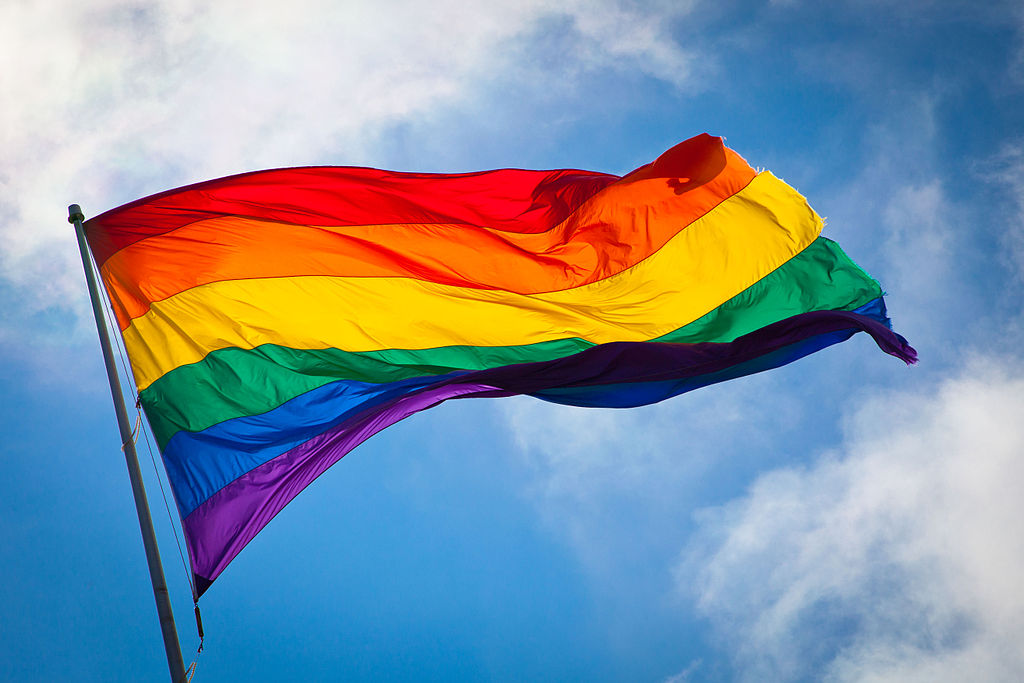In response to a private member’s bill which seeks to decriminalise same-sex relations between consenting adults, a collection of over thirty civil society organisations and individuals questioned this gesture as Sri Lanka’s president continues a “systemic campaign to arrest and detain protesters involved in the aragalaya protests”.
“This has been carried out by the Emergency Regulations and, most alarmingly, the Prevention of Terrorism Act (PTA)” the joint statement notes. The statement adds:
“This crackdown seemingly aims to intimidate and silence Sri Lankans who have been voicing dissent against the Government, including LGBTQI+ Sri Lankans”.
The statement accuses the Sri Lankan government of attempting to present the bill to the international community as “evidence of its liberal credentials” whilst simultaneously utilising the amendments in the penal code which enable for “stronger search, arrest and detention powers”.
The outlawing of homosexuality in Sri Lanka can be traced back to the imposition of British colonial rule, which introduced similar penal codes in other British colonies, such as India. Despite seventy years passing since Sri Lanka’s independence, the island has not been able to get past its homophobic, transphobic, and bigoted legacy. Instead, government ministers, such as Wijeyadasa Rajapaksa, have openly called for the rape of lesbians to “cure them” of their homosexuality.
Whilst the move to amend sections 365 and 365A of the Penal Code, which criminalise same-sex relations, may be seen as a positive step, little has been done to limit the power of Sri Lankan police to arbitrarily detain individuals.
.jpg)
In 2019, Australia’s Department for Foreign Affairs and Trade’s (DFAT) detailed how Sri Lankan authorities utilised “the Vagrants Ordinance (which empowers authorities to detain people considered to be loitering in public) to threaten, harass, extort money and sexual favours, and arbitrarily arrest and detain LGBTI individuals”.
Equal Grounds, a Colombo-based organisation, has similarly reported that often the penal code is not cited by authorities. They reported to delegates from the UK Home Office fact-finding mission that:
“LGBTI persons are detained all the time, detained without any charges being filed. Mainly detained so that money or sexual favours can be obtained from the person [by the police]. If it is not given then they are beaten, raped or blackmailed”.
“On an individual basis police do not protect. In fact, they are the main perpetrators of violence and discrimination against LGBTI persons” Equal Grounds states.
In 2016, Human Rights Watch reported:
“Nearly two dozen of the LGBTI people whom Human Rights Watch interviewed said they had suffered sexual, physical, or severe verbal abuse by the Sri Lankan police—nearly all of those reporting police abuse being transgender people or men who have sex with men (MSM) [...] More than half of this group said that police had detained them without cause at least once […] Seven LGBTI people told Human Rights Watch that police officers raped, threatened to rape, sexually assaulted, or sexually harassed them”.
The sexual abuse for LGBT sex workers is particularly high with Equal Grounds reporting:
“LGBTI persons and female sex workers, face an additional sexual abuse pattern [on arrest]. A heterosexual thief, for example, might get beaten up but there may not be any sexual abuse. But for a sex worker or LGBTI persons, sexual abuse is almost always on the table”.
Systemic issues of a lack of police accountability, and militarisation across the North-East, have left Tamils at particular risk of sexual violence and abuse.
Organisations such as Human Rights Watch and the International Truth and Justice Project have extensively reported on sexual violence against Tamils. A 2021 report by the ITJP detailed the testimonies of 15 Tamils who had been abducted, detained and tortured by Sri Lanka security forces, since Gotabaya Rajapaksa took office as Sri Lanka's president in 2019.
"The victims being detained now are generally young and of little intelligence value to the security forces, who appear to be mounting a campaign of repression against legitimate Tamil expression of fundamental rights including protests or calls for accountability," the report stated.
The joint statement, whilst stressing the need to decriminalise homosexuality, expressed scepticism that the government had “no sincere commitment to the LGBTQI+ community” and is “only interested in using it to sustain a frightening campaign of repression which we both strongly condemn and whose targets we stand in complete solidarity with”.
The letter was signed by the following organizations and individuals;
1. Community and Welfare Development Fund 2. Voice for Equality 3. Women and Media Collective 4. A. Antinyseelan 5. Anuhas Sandaru 6. Chanu Nimesha 7. Damith Chandimal 8. Denver Mark 9. Ephraim Shadrach 10. Harry Fernando 11. Heshan Niluminda 12. K. Mahinthan 13. K. Sathurshan 14. Kaushalya Ariyarathne 15. Meera Nadarasa 16. Mirak Raheem 17. Nathasha Edirisooriya 18. Neranjan Maddumage 19. Paba Deshapriya 20. Pasan Jayasinghe 21. S. Sugumar 22. Sachini Perera 23. Sahan Guruge 24. Saman Kumara 25. Sanchia Brown 26. Shydhah Zaara 27. Thenu Ranketh 28. Vasi Samudra Devi 29. Visakesa Chandrasekaram 30. Vishwa Pathum 31. Waradas Thiyagaraja
Read the full statement here.
We need your support
Sri Lanka is one of the most dangerous places in the world to be a journalist. Tamil journalists are particularly at threat, with at least 41 media workers known to have been killed by the Sri Lankan state or its paramilitaries during and after the armed conflict.
Despite the risks, our team on the ground remain committed to providing detailed and accurate reporting of developments in the Tamil homeland, across the island and around the world, as well as providing expert analysis and insight from the Tamil point of view
We need your support in keeping our journalism going. Support our work today.
For more ways to donate visit https://donate.tamilguardian.com.


